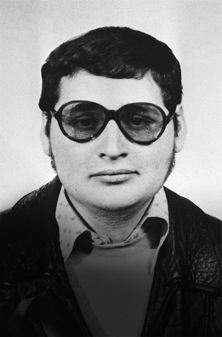1) Carlos is not his real name
It wasn’t until later on in his life that Ilich Ramírez Sánchez became known as Carlos the Jackal. It is alleged that an officer in Marxist-Lenin group the Popular Front for the Liberation of Palestine (PFLP) gave the assassin the code name ‘Carlos’ because of his South American roots. When a copy of the novel Day of the Jackal was found in his belongings The Guardian newspaper completed his nickname and one of the most notorious alter egos was created.
2) Communist ideologies
Born in Venezuela into a family with clear communist political beliefs – one of his younger siblings was named Lenin – it was always likely this would be an important part of his life. A member of the Venezuelan Communist party in his teenage years he reportedly had his first guerrilla training in Cuba in the mid 1960s before joining the PFLP in the 1970s.
3) He often made mistakes
Despite his reputation as one of the world’s most feared assassins he often failed in his objectives. His early missions were not successful – he shot but did not kill president of the Marks and Spencer’s retail chain, Joseph Edward Sieff in his London home and in 1975 twice attempted to launch rocket-propelled grenades at Israeli airlines at an airport in France but missed on both occasions.
4) OPEC hostage crisis
His most infamous incident occurred in 1975 when he, along with five other attackers, broke into a building holding a meeting of OPEC (Organization of the Petroleum Exporting Countries) leaders in Austria. Three people were killed and several wounded as they took over the building before more than 60 hostages were taken. Carlos and his accomplices were provided with an airplane that they boarded with 11 of the hostages. All of the hostages were eventually released in exchange for a ransom and Carlos escaped to Algeria.
5) Doing hard time
He was arrested in 1994 by French special forces in Sudan after the Sudanese government sold him out and by 1997 was convicted of the 1975 killing of two French secret agents and a Lebanese revolutionary. In 2011 he was brought to trail again and found guilty of killing 11 people in bomb attacks in the 1980s and ordered to serve another life sentence. His appeal failed and he is extremely likely to spend the rest of his life in jail.
This article is from issue 05 of All About History. To get this issue click here or to subscribe click here

